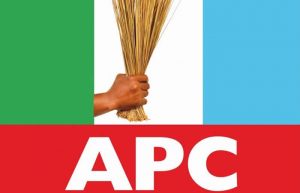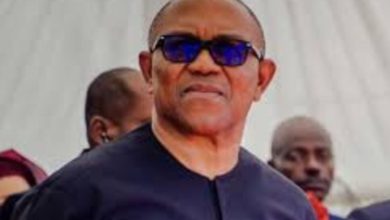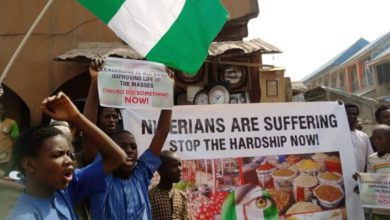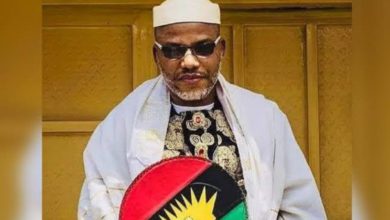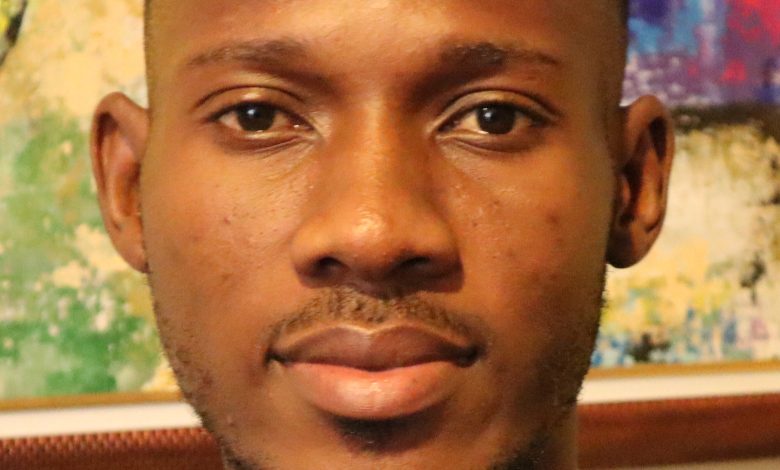
NIGERIA’S 2023 PRESIDENTIAL ELECTION, A RESOUNDING ECHO: VOICES HEARD LOUD AND CLEAR
By: Christopher C. Nwachukwu
- Once upon a time, Nigerian youths were called lazy. Some others have not failed to show their displeasure in the way in which Nigerian youths are expressive on social media, wanting their voices heard and so on while many others want a sort of regulations of the use of social media and if possible to the standard of the conventional media- Print and electronic. However, others find it saucy and disrespectful the way Nigerian youths attack people who seem not to be on the same page with them while some political thinkers and juggernauts believe that the youths should leverage on their recent activeness in Nigerian politics and take advantage of their social media presence in championing their cause but in a more relatable approach involving dialogue and negotiations. This they believe would be better for the youths rather than what some people who belong to this school of taught refer to as online bullying.
INTRODUCTION:
There’s no doubt that elections are among the most effective ways of promoting participation in governance and representation where the system if free, fair and just. In uniting diverse groups like in Nigeria, elections become inevitable and once again suffice as an essential way of promoting participation and representation in governance.
Over the years, Nigeria has conducted many elections and this is not devoid of a plethora of electoral problems. The government and the electoral body have strived to transform the electoral process . This is aimed at safeguarding the integrity of election outcomes. There have also been agitations against exclusion and the government of Nigeria through legislations has made efforts to have an all-inclusive electoral process.
However, monetized politics has remained a major problem in Nigeria elections and this has made vying for political positions only attractive to a very few individuals who have acquired enormous wealth over the years through either legitimate or illegitimate means or both.
DISCOURSE BACKGROUND:
In Nigeria, the military dictatorship- which was a period when members of Nigerian Armed Forces held power existed from 1966 to 1999 with an interregnum from 1979 to 1983. After the end of military dictatorship in 1999, the bandwagon political ‘godfather’ and ‘moneybags’ were reinvented. The people who fall under this category have acquired so much wealth and control many assets. Some are business tycoons while some others have unexplainable wealth. Be it as it may, they have money at their disposal and as such can afford to finance their cause or interest in politics and especially in a democratic electoral process which many have suggested is expensive to oversee. They also influence the conduct of internal party elections, finance candidates as well as fund general elections. Ordinary party members who are not godsons may not become the political party flag bearers.
With the emergence of the Not Too Young to Run bill in 2018, the age factor which limited young people from running for key offices in Nigeria was eliminated. Prior to this, the socio-economic and political system limited the youths from running for political offices thereby leaving the political space for only those who can afford to purchase very exorbitant party nomination forms and/or can fund the very expensive political campaign existing before the Not Too Young To Run bill of 2018.
For the 2023 general elections in Nigeria, the Independent National Electoral Commission (I.N.E.C) which is the electoral body in Nigeria introduced innovations and technologies like Bimodal Voter Accreditation System –BEVAS and INEC Result Viewing Portal- IRev. Before this time, the Permanent Voters Card was introduced all with the aim of conducting free and credible elections.
ISSUES AT STAKE:
Once upon a time, Nigerian youths were called lazy. Some others have not failed to show their displeasure in the way in which Nigerian youths are expressive on social media, wanting their voices heard and so on while many others want a sort of regulations of the use of social media and if possible to the standard of the conventional media- Print and electronic. However, others find it saucy and disrespectful the way Nigerian youths attack people who seem not to be on the same page with them while some political thinkers and juggernauts believe that the youths should leverage on their recent activeness in Nigerian politics and take advantage of their social media presence in championing their cause but in a more relatable approach involving dialogue and negotiations. This they believe would be better for the youths rather than what some people who belong to this school of thought refer to as online bullying.
It is also important to note that Whereas the Nigerian Electoral Act of 2010—as revised in February 2022— drew a limit for campaign spending, it omitted regulating political parties’ excessive fees for nomination forms, which reduces the number of youngsters who can participate in politics. Since 2011, the price of political party “Expression of Interest” and “Nomination Forms,” which serve as the prerequisite for an election, has risen above the means of many young people. Even with the 50% reductions for women and young people, the cost of the All Progressive Congress (APC) and Peoples Democratic Party (PDP) nomination forms for the 2023 elections alone made it impossible for young people to pursue their ambition of becoming elected officials. Rich politicians can afford to pay for this, turning politics into a cash-and-carry business. This also is an open door to corruption.
Notwithstanding these challenges, young people in Nigeria are starting to question the electoral system; they are formulating plans to get around the obstacles and broadly widen the political field for active involvement in elections. Their voices have started to indicate that they are prepared to take on the roles of leaders of today rather than tomorrow. Youth’s determination to end their ongoing exclusion from running for office due to the cost of party nomination forms has become more apparent through the consolidation of their interests; this is true even after the successful passage of the Not Too Young to Run bill, which legally opened doors of opportunity for youths. Efforts are being made to pursue a paradigm shift away from the elderly and toward the young and this is not a question of ageism as some critics may think rather it is Nigerian youths wanting to be leaders of today rather than the ‘forever’ leaders of tomorrow, they have for a long time been told while those who have been in power since the youths were babies are still wanting to remain in the seat of governance even till date.
The just concluded 2023 presidential election in Nigeria is a prove that Nigerian youths are not lazy and can champion a good cause. Majority of young Nigerians rallied round the presidential candidate of the Labour party, Mr. Peter Obi who they believe can champion their cause. However, no doubt, the presence of the youths and their participation in the electoral process in Nigeria in the presidential election of 2023 has changed the narratives. It is no longer business as usual. Nigeria’s elections have often been characterized with electoral malpractice in the form of rigging. Electoral violence like ballot box snatching and killings are also often witnessed during elections in Nigeria. Disenfranchisement has also remained a big challenge in Nigerian elections. However, some others believe elections in Nigeria is still progressive.
CONCLUSION:
Nevertheless, giving up on an issue does not solve the issue. Therefore, Nigerian youths must continue to be active until they are fully represented in governance. Breaking of PVCs, concluding on never to participate again and the likes will only take the youths backward. Nigeria can only be fixed by Nigerians. Migrating abroad may not be the solution to Nigeria’s problems as a popular saying suggests “No place like home”.
Would Nigerian youths continue to overcome the challenges they are faced with in Nigerian politics and political elections? Perhaps, only time will tell. The voices of Nigerian youths have been heard loud and clear and this is not debatable.
Christopher C. Nwachukwu
References:
Adaramola, Z. (2021). MRA Sues NBC Over Social Media Regulation. Daily Trust. 17th August 2021. [online]. Available from: https://dailytrust.com/mra-sues-nbc-over-social-media-regulation/ [Accessed 3rd March 2023].
Cheeseman, N. and Bertrand, E., (2019). A dictionary of African politics. Oxford University Press.
Chukwuemaka, E., Oji, R.O. and Chukwurah, D.J.C., (2013). Give them their rights: A critical review of godfather and godson politics in Nigeria. Review of Public Administration and Management, 2(2), pp.192-202. Available from: https://www.walshmedicalmedia.com/open-access/give-them-their-rights-a-critical-review-of-godfather-and-godson-politics-in-nigeria-2315-7844-1-133.pdf [Accessed 3rd March 2023].
Daily Trust (2018). Buhari: Many Nigerian Youths Are Lazy, Want Free Oil Money. 18th April 2018. [online]. Available from: https://dailytrust.com/buhari-many-nigerian-youths-are-lazy-want-free-oil-money/ [Accessed 3rd March 2023].
Daily Trust (2022). EXPLAINER: What INEC’s BVAS Means And How To Minimise Its Failure During Elections. 27th April 2022. [online]. Available from: https://dailytrust.com/explainer-what-inecs-bvas-means-and-how-to-minimise-its-failure-during-elections/ [Accessed 3rd March 2023].
Independent National Electoral Commission (INEC) (2023). Presidential Elections Results Sheet. Available from: https://inecnigeria.org/ [Accessed 2nd March 2023].
Joseph T. T. (2023). Youths’ Involvement in Politics and Broadening Of Electoral Choices. Daily Trust. 5th February 2023. [online]. Available from: https://dailytrust.com/youths-involvement-in-politics-and-broadening-of-electoral-choices/ [Accessed 3rd March 2023].
Onah, E.I. and Nwali, U., (2018). Monetisation of electoral politics and the challenge of political exclusion in Nigeria. Commonwealth & Comparative Politics, 56(3), pp.318-339. Available from: https://www.researchgate.net/publication/325337130_Monetisation_of_electoral_politics_and_the_challenge_of_political_exclusion_in_Nigeria [Accessed 3rd March 2023].
Omolaoye, S. (2022). INEC to deploy BVAS, IREV for FCT council poll. The Guardian. 18th January 2022. [online]. Available from: https://guardian.ng/news/inec-to-deploy-bvas-irev-for-fct-council-poll/ [Accessed 3rd March 2023].
Vanguard (2018). “Money bags” politics responsible for poor democratic dividends – CSO. 30th July 2018. [online]. Available from: https://www.vanguardngr.com/2018/07/money-bags-politics-responsible-for-poor-democratic-dividends-cso/ [Accessed 3rd March 2023].
Vanguard (2023). Buhari and the Electoral Amendment Bill. 3rd March 2021. [online]. Available from: https://www.vanguardngr.com/2022/03/buhari-and-the-electoral-amendment-bill/ [Accessed 3rd March 2023].
WFD (2019). “Not Too Young to Run” – Nigeria’s youth and politics. 2nd December 2019. [online]. Available from: https://www.wfd.org/story/not-too-young-run-nigerias-youth-and-politics [Accessed 3rd March 2023].
The Cable (2022). Key provisions of Electoral Act, April 19 2022 [Online] https://www.thecable.ng/review-key-provisions-of-electoral-act-2022 [Accessed 2nd March 2023]
The Cable (2022). Political party nomination fees and the shrinking political space. May 05 2022 . [Online]. Available from: https://www.thecable.ng/political-party-nomination-fees-and-the-shrinking-political-space by Samson Itodo [Accessed 1st March 2023]
The Sun (2022). Many Questions Over Cost of APC/PDP nomination forms fees Invitation to Corruption 25th April 2022. [Online]. Available from: https://sunnewsonline.com/many-questions-over-cost-of-apc-nomination-forms/ [Accessed 20th January 2023]
Premium Times (2022). Again, PDP Extends Sales of Nomination Forms. April 21, 2022. [Online]. Available from: https://www.premiumtimesng.com/news/more-news/525049-2023-again-pdp-extends-sales-of-nomination-forms.html?tztc=1 [Accessed 28th February 2023].
Punch Newspaper (2022). APC/PDP Nomination Forms Fees Invitation For Corruption. April 28, 2022. [Online]. Available from: https://punchng.com/2023-apc-pdp-nomination-forms-fees-invitation-for-corruption-activist/ [Accessed 20th January 2023].
BBC News, Lagos (2023). Nigeria Election 2023: Who Is Peter Obi Of The Labour Party? Feb. 23, 2023. [Online]. Available from: https://www.bbc.com/news/world-africa-61865502 [Accessed 23rd Feb.2023].
The Guardian (January 2019). Youths, CSOs, Stakeholders Speak Against Involvement in Political Violence. 19 January 2019. [Online]. Available from: https://guardian.ng/saturday-magazine/youths-csos-stakeholders-speak-against-involvement-in-political-violence/ [Accessed 3rd March 2023]
Punch (2023). Nigeriaelections2023: Killings, BVAS, Ballot Box Snatching Mar Polls. February 26 2023. [Online]. Accessed from: https://punchng.com/nigeriaelections2023-killings-bvas-ballot-box-snatching-mar-polls/ [Accessed 26th February 2023].
Dr Leena Koni Hoffmann (2023). Nigeria’s Election Results Put Disenfranchisement In The Spotlight. Despite boasting the biggest electoral register in Africa of 93.4 million voters, fewer than 25 million valid votes were counted in Nigeria’s 2023 election. Chathamhouse.org. [March 1, 2023]. [Online]. Available from: https://www.chathamhouse.org/2023/03/nigerias-election-results-put-disenfranchisement-spotlight [Accessed 1st March 2023].
